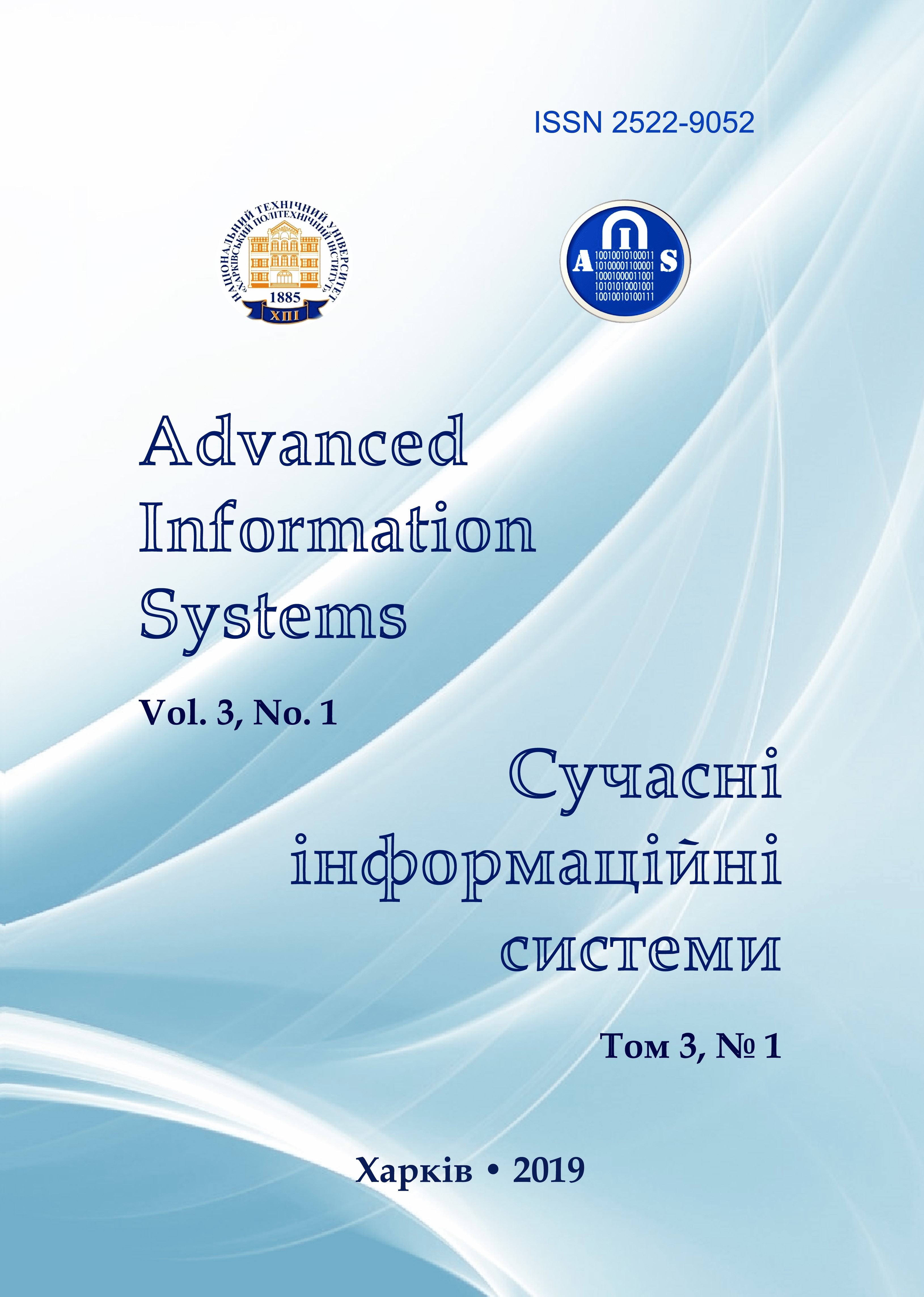METHOD OF GENERATING RECOMMENDATIONS LISTS WITH CONSIDERING ACTIVITY INDEXES OF USERS IN A RECOMMENDATION SYSTEM
Main Article Content
Abstract
The subject matter of the article is the process of generating recommendations lists for users of a recommendation system. The goal is to develop a new method of building recommender systems to improve the quality of recommendations lists, increase user space coverage and item space coverage with considering information about user activity indexes; development of a hybrid of this method with the method of collaborative filtering. The tasks to be solved are: to develop the method of building recommendation systems based on considering activity indexes of users, develop software to test this method, conduct experiments with the developed software to test the effectiveness of the developed method, determine the quality of its work and compare this method with the standard method of collaborative filtering. The methods used are: graph theory, mathematical statistics, the theory of algorithms, object-oriented programming. The following results were obtained: the expert-oriented method for building recommender systems based on considering indexes of user activity and calculating expert coefficients has been developed, the hybrid of this method with the collaborative filtering method has been developed, software for implementing this method and this hybrid has been developed, experiments with developed software to test the developed method and the hybrid has been conducted. Conclusions. The possibility of using information about user activity in recommender systems to improve the quality of recommendations lists has been investigated. The calculation of expert coefficients is proposed to supplement the similarity coefficients in recommender systems. An expert-oriented method for constructing recommender systems based on considering activity indexes of users and its hybrid with collaborative filtering has been developed. Experiments has been conducted with the developed software have shown that the developed method significantly improves such indicators of the recommender system as user space coverage and item space coverage and allows to create higher quality of recommendation lists without significant fluctuations Precision and Recall of the recommender system, and in some cases even improve these indicators, it depends on the features of the input data.
Article Details
References
Francesco, Ricci, Lior, Rokach, Bracha, Shapira and Paul B., Kantor (2010), Recommender Systems Handbook, Springer-Verlag, New York, USA, 842 p.
Meleshko, Е.V., Semenov, S.G. and Khokh, V.D. (2018), “Research of methods of building advisory systems on the internet”, Control, Navigation and Communication Systems, Issue 1(47), PNTU, Poltava, pp. 131–136.
Segaran, T. (2008), Programming Collective Intelligence. Building Smart Web 2.0 Applications, O'Reilly Media, 368 p.
Meleshko, Е.V. (2018), “Problems of modern recommendation systems and methods of their solution”, Control, Navigation and Communication Systems, Issue 4 (50), PNTU, Poltava, pp. 120–124.
Saravana, Balaji B,, Karthikeyan, N.K. and Raj Kumar, R.S., (2018), “Fuzzy service conceptual ontology system for cloud ser-vice recommendation”, Computers & Electrical Engineering, Vol. 69, pp. 435–446, DOI:
https://doi.org/10.1016/j.compeleceng.2016.09.013.
Ruban, I., Kuchuk, H., Kovalenko, A. (2017), “Redistribution of base stations load in mobile communication networks”, Inno-vative Technologies and Scientific Solutions for Industries, No. 1 (1), рр. 75–81, DOI: https://doi.org/10.30837/2522-9818.2017.1.075
Meleshko, Ye. (2018), “Method of collaborative filtration based on associative networks of users similarity”, Advanced Infor-mation Systems, Vol. 2, No. 4, National Technical University "Kharkiv Polytechnic Institute", Kharkiv, pp. 55–59.
Meleshko, Е.V., Bosko, V.V. and Reznichenko, V.A. (2018), “Development of the recommendation system based on DBMS neo4j”, V Int. Scientific and Practical Conf. "Information Technologies and Interactions", Kyiv, pp. 351–352.
Neo4j Documentation (2018), available at: https://neo4j.com/docs/.
Harper, F.M. and Konstan, J.A. (2016), “The MovieLens Datasets: History and Context”, ACM Transactions on Interactive Intelligent Systems (TiiS), DOI: https://doi.org/10.1145/2827872.
Meleshko, Е.V. (2018), “Quality assessment methods of work of recommendation systems”, Control, Navigation and Commu-nication Systems, Issue 5 (51), PNTU, Poltava, pp. 92-97.
